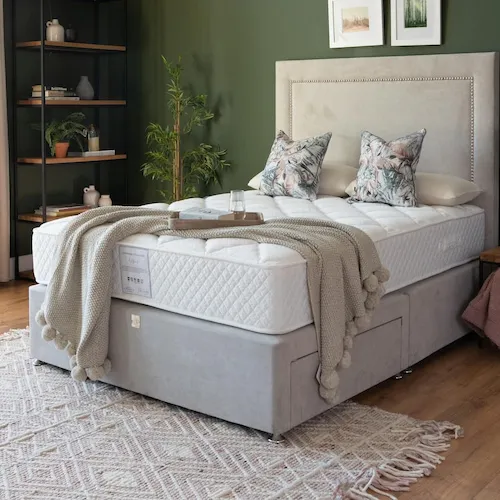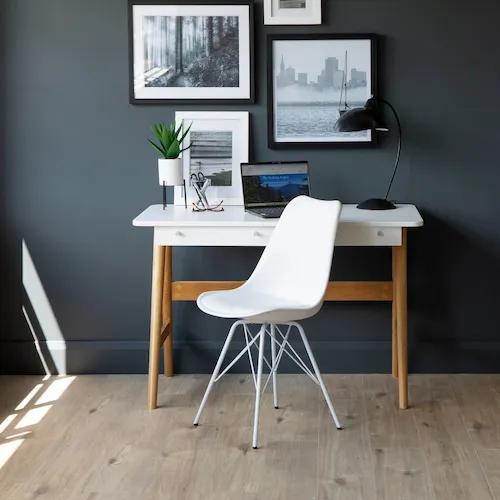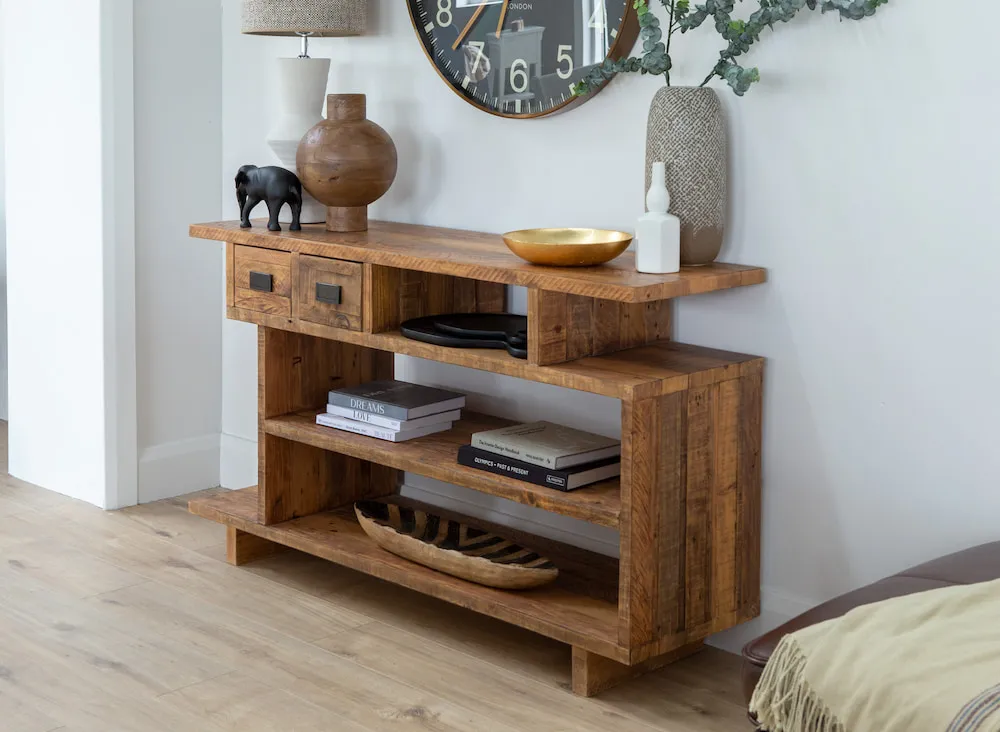Working from home is a relatively new experience for many of us in Ireland. Up until recently, most of us commuted to work, either by bus, train, car or even on foot to workplaces that existed outside of our homes. With office-based work being the most common practice in this country, it was no surprise that when the Covid-19 pandemic hit, we were unexpectedly thrust into the unknown. Many employees were advised to work remotely over safety concerns, and it seemed that many of us had to transform our homes into offices and fast. You know what they say, "Home is where the heart is"….and now, home is where the home office needed to be.
Office furniture was purchased in haste, office chairs were researched beyond what is deemed reasonably acceptable, and office desks were squeezed into 1ft x1ft apartments in preparation for what was to come. Then there were those who believed that the Covid-19 storm would pass quickly and with minor inconvenience to their lifestyles. If only that were true. These individuals remained working from their couches, dining tables, dining chairs and even beds. Of course, it was only a temporary situation, right? Wrong. Now, almost a year on, these people are starting to suffer ill effects due to the changes in everyday life. This is unsurprising when the only commute taking place was the walk from the bedroom to the kitchen/dining room, and the bathroom if we have time. Not moving for hours on end is the new ‘norm’ and is causing a number of aches and pains in our necks and backs. As well as this, we are facing disruption to our sleeping patterns because of our lack of movement and exercise. In search of knowledge and useful tips, EZ Living Furniture spoke with Sarah Vickery (Chartered Physiotherapist, API Pilates Instructor and Therapeutic Yoga Instructor) to learn how to avoid tightness and pain in our muscles while working from home and during the night.
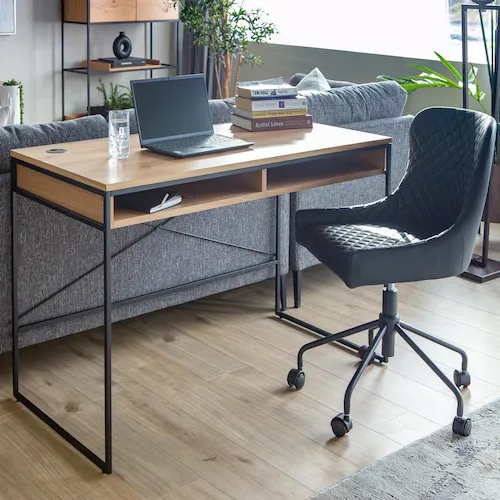
Office Furniture
While we would always recommend purchasing some good quality office furniture from EZ Living Furniture, Sarah says that firmness, height and how you sit are all important factors to consider when choosing the perfect office chair.
"You need a decent chair, one that is not extremely firm and one that doesn’t allow the body to sink into its natural curvature". Not unlike Goldilocks and The Three Bears, Sarah also urges us not to purchase any chair that is too soft. "Nothing too soft that doesn’t give any support and you can sink into". Therefore, a couch or sofa is not the best place to operate from because these allow you to slouch. "What happens when you sit or slouch into it is that you lose that natural curvature in the spine, or its neutral spine position and you get into a more strained or sustained position."
The height of an office chair can also cause strain to the neck when not adjusted correctly. "Make sure that your office chair isn’t too high, that you are not slouching or tilting forward, and that your knees are bent at 90 degrees."
If your laptop or computer is not positioned at eye level on an office desk, this can also add to neck problems. Our Physio expert suggests adding a few books underneath to help raise them to eye level and avoid neck issues.
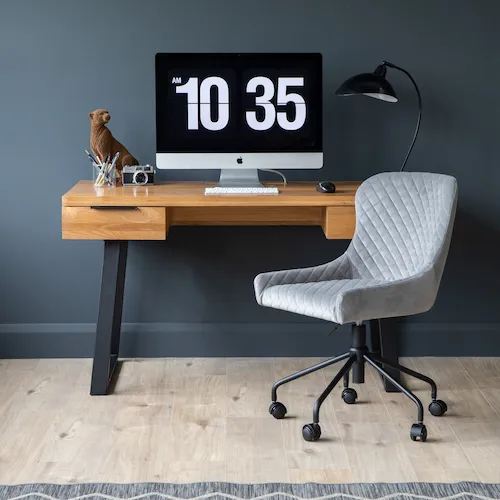
Alarms
"No one has an absolutely perfect posture and it’s not about that, it’s about how long you spend in one particular position that puts strain on your tissues.” For this reason, Sarah recommends setting an alarm every 30 mins, during which time you should get up, walk around for a minute or two before sitting back down. "Our bodies are not designed to stay in one position for a long period of time."
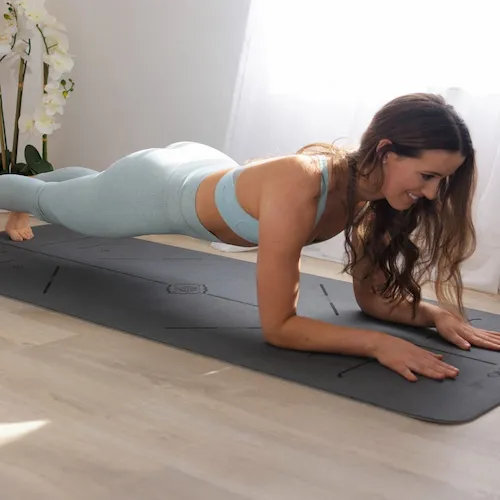
Sarah Vickery shows us how easy it is to exercise from the comfort of our own homes.
Exercise
“Be aware of your position but remember also that movement is a big thing”. Whether you are working from the dining room, living room, study area or kitchen, exercise is a must. Even if you do not meet your physical targets for the day. Not getting up and moving can still affect your health negatively (BMI etc) according to Sarah.
“I recommend a variety of exercises including light walks but also strength and flexibility work for your joints.”
If you are feeling stiff in the mornings, exercise will also help to loosen you up. “Instead of one big exercise session try little bits more often, such as 5 minutes in the mornings and 5 minutes in the evenings.”
“Remember, exercising once a week is a carryover, exercising twice a week is an improvement.”
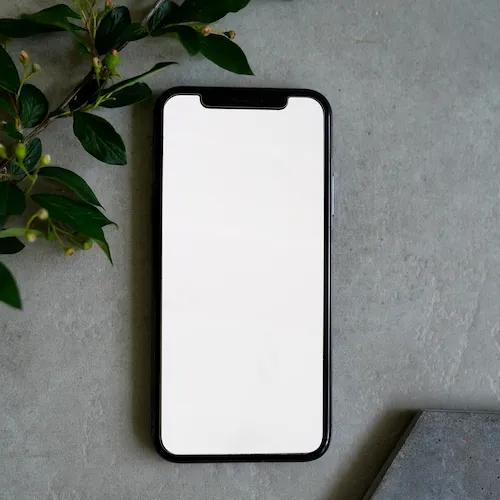
Phones
Our phones are a massive part of everyday life since the introduction of the smartphone but have you ever wondered whether looking at your phone can put pressure on your neck? Well, Sarah clears this up for us. “I’m seeing a lot of back and neck pain, when we look at our phones it over-activates the muscles at the front of the neck, which causes poor strength in the back of the neck and neck pain over long periods of time.” Therefore, it might be time to stop looking at your phone as often, switch it off or start removing chargers from the dining room, living room and bedroom. Or maybe not…I mean it’s definitely something worth considering.
The Ashford Mattress from EZ Living Furniture.
Mattresses
There is a lot to be said for a good mattress according to Sarah and just like an office chair, it’s best to choose a mattress that isn’t too soft and isn’t too firm. “If a mattress is too soft, your pelvis can sink into it and you can lose the natural curvature in the spine. If a mattress is too firm, it can irritate pressure points in the body.” Don’t forget that spending too long in one position can strain your muscles and most of us will spend at least 8 hours on our mattresses. That’s a lot of time. “It’s best to sleep on your side and this is the most common sleeping position”.
EZ Living Furniture Sleep Specialist - Paul Ryan, couldn’t agree more with Sarah’s mattress advice. "I would always recommend a medium mattress to start with and work from there to help a customer determine what they find comfortable and what best fits their needs."
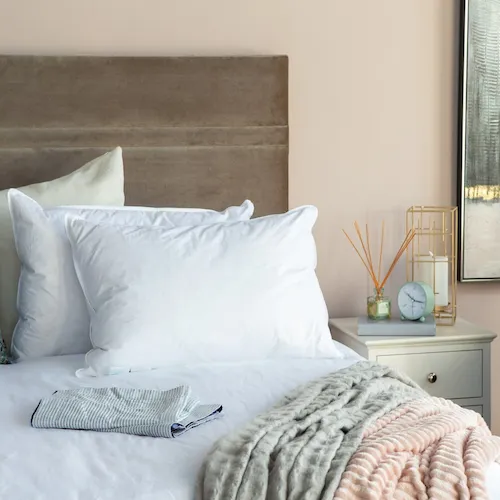
Pillows
Pillow height is also a very important factor to consider when sleeping according to our expert. “Do not have a high pillow because it can cause neck strain. You should keep the neck and shoulder in line by using two, thin pillows or one, not-too-thick pillow”.
Building Habits
"It takes 66 days to formalise a habit, so even if you don’t feel like doing it, you will do it out of habit after 66 days." For more advice on how best to avoid aches and pains while sleeping or working from home, follow Sarah Vickery on Instagram or contact her through her website here.
We hope you enjoyed this content and found it useful and informative. We aim to share our expertise and knowledge with our customers and to do this we have a team of content creators working tirelessly behind the scenes. We do not use AI to create our content. Click this link to find out more about our team and content guidelines.
